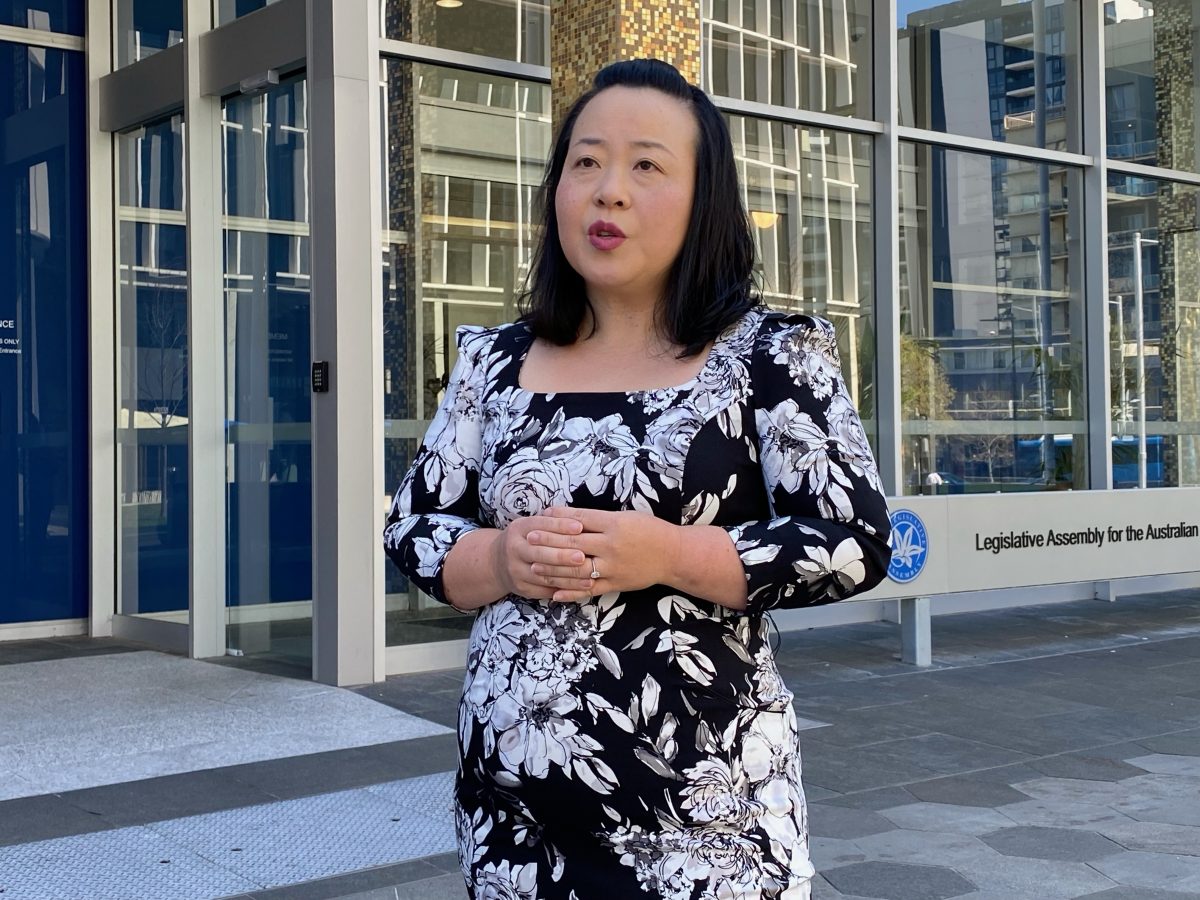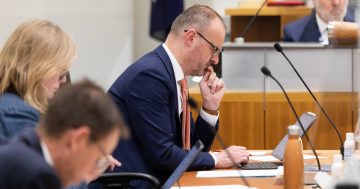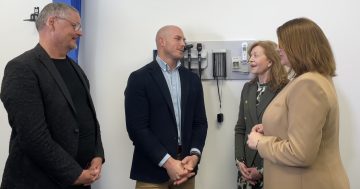
ACT Opposition Leader Elizabeth Lee says she will abolish the payroll tax on GPs if elected in 2024. Photo: Claire Fenwicke.
Canberra GPs have issued another warning about the new payroll tax’s impact on general practices. It follows Opposition Leader Elizabeth Lee’s unsuccessful motion on Wednesday (13 September) to exempt GPs from the tax.
“It’s economic madness for the ACT to be imposing a new tax on Canberra’s GPs at a time when we really should be trying to stimulate growth and healthy competition in general practice in the Territory,” Australian Medical Association (AMA) ACT president Dr Walter Abhayaratna said.
Ms Lee told the Assembly yesterday that some practices had already started to increase their prices, and noted comments from local GPs who said they would have “no choice but to raise their fees”.
She quoted one local practitioner who said: “I have it on good assurance that many GPs are so distressed by developments that they are looking at leaving the profession, or altering their workloads.”
Ms Lee said Canberra already had the lowest number of GPs per capita in the country and “losing any of our GPs will place even more pressure on our failing hospital system”.
A survey conducted by AMA ACT found 80 per cent of practices were likely to increase their private billing fees if they were subjected to the new payroll tax.
“It’s clear the patients can expect to see an increase in the $10 to $15 range for private billings as the new tax is passed through,” Dr Abhayaratna said last week.
However, the ACT Government has continued to hit back at accusations the payroll tax will have a significant impact on local practices.
Asked about fee increases, Health Minister Rachel Stephen-Smith said “the quantum of fee increases that we’ve seen indicates that they will be passing on $2 to $5”.
“It really does indicate that the overblown rhetoric about a $15 to $20 increase in patient fees was completely wrong.
“The challenge throughout this whole conversation has been that advocates, whether it’s the RACGP or the AMA or individual medical professionals, have been running a campaign based on inaccurate information.”
GPs have also continued to criticise the ACT Government’s push for higher bulk billing rates in the Territory.
In an effort to encourage higher bulk billing rates, Chief Minister Andrew Barr last month announced a temporary payroll tax exemption for healthcare businesses that bulk bill at least 65 per cent of patients. But local GPs claimed they would not be able to reach this threshold and stay financially viable.
“[Bulk billing rates] are the lowest in the nation in the ACT and they currently sit at 56 per cent,” Mr Barr told the Assembly yesterday.
“The ambition to get from 56 to 65 [per cent] is not that big a leap,” he said, adding that every other jurisdiction in the country has a bulk billing rate above 70 per cent.
However, the AMA called Mr Barr’s push for higher bulk billing rates “ill-conceived” and “doomed to fail” because it failed to recognise the factors driving GPs’ fees to increase in the ACT.
“Over the years, as indexation of the Medicare rebate didn’t keep pace with the real cost of things, the gap between the Medicare rebate and the private fee charged for a consultation became larger and larger,” said Dr Clara Tuck Meng Soo, who earlier this year closed the Hobart Place General Practice in part due to the fact it was no longer financially viable.
“Achieving the 65 per cent would mean that general practices lose 30 per cent of their income or more.
“General practices in Canberra have profit margins of less than 10 per cent, so no practice can afford to switch to that sort of bulk billing rate without going out of business.”
The AMA said bulk billing rates in Canberra were comparable with higher socioeconomic areas of Sydney or Melbourne.
Dr Abhayaratna said the ACT’s low bulk billing rate was also due to the high cost of living, which had implications for GPs and practice staff who needed to afford to live and raise families locally.
At the same time, he said Canberra was becoming a less desirable place to work as a GP due to government policies such as changes to regional workforce incentive payments, making it harder to attract and retain GPs.
“Doctors retire and there is no-one to take on their patient base. GP training positions remain unfilled year upon year.
“At a time when Canberra desperately needs more GPs, Mr Barr is sending the unfortunate signal that the ACT Government does not value general practice.”




















